In four rallies, activists deliver suppressed public comments previously submitted to Virginia DEQ in support of Regional Greenhouse Gas Initiative (RGGI)
RICHMOND, VA: Yesterday, scores of activists across Virginia rallied against Governor Glenn Youngkin’s plan to remove Virginia from the Regional Greenhouse Gas Initiative (RGGI). In Richmond, Norfolk, Woodbridge, and Blacksburg, crowds of concerned Virginians spoke up for the popular and highly beneficial program, which has already generated more than $624 million for flood resilience and energy efficiency programs across the Commonwealth.[1]
Analysis from the Southern Environmental Law Center shows that 88% of Virginians who submitted public comments expressed support for RGGI. But when Youngkin’s government reviewed those public comments, they ignored a vast majority of the pro-RGGI comments, classifying them as “off-topic.”
NORTHERN VIRGINIA
In Woodbridge, more than 30 activists broadcast audio of the Youngkin administration calling pro-RGGI comments “off-topic,” then delivered suppressed comments to the regional Department of Environmental Quality (DEQ) office. They also displayed them on signs for the public to see, and read them aloud, before singing together: “The tide is rising and so are we.”
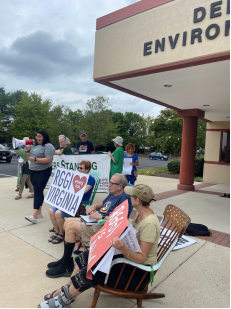
Victoria Higgins, Virginia Director of the Chesapeake Climate Action Network, stated: “The simple truth is that the Regional Greenhouse Gas Initiative has been overwhelmingly successful in reducing air pollution in Virginia and regionally; it has continuously overperformed by creating hundreds of millions of dollars every year for essential programs that deliver results to Virginians who need them most; and it is an indispensable tool in our fight against climate change. RGGI just works – it works to protect our coasts and low-lying areas from flooding, to keep Virginians in their homes, and to drive down energy bills for low-income Virginians. Without RGGI, Governor Youngkin has no plan to deliver these life-saving programs to Virginians. We will fight back against his illegitimate, anti-democratic, anti-scientific agenda at every chance we get.”
Jordan Seurattan, Northern Virginia Organizer with the Virginia League of Conservation Voters, stated: “The people have spoken time and again, but Governor Youngkin won’t listen. Governor Youngkin believes he can gaslight us into believing that RGGI is harmful for Virginia, when in reality it’s his policies that are hurting our communities. When people in power use their position to put polluters first, it’s up to us to hold them accountable. That’s why we are here today. To tell Youngkin that he’s not fooling us, and Virginian’s deserve better.”
RICHMOND
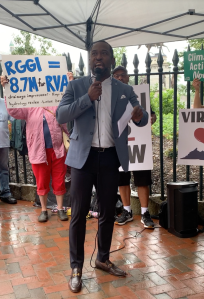
Meanwhile, in Richmond, steps away from the Governor’s Mansion, Mayor Levar Stoney and City Council Member Katherine Jordan joined the call for Youngkin to stop his unlawful efforts to kneecap Virginia’s biggest climate adaptation program.
Richmond Mayor Levar Stoney related a personal experience: “Folks who are living hand-to-mouth, who are living paycheck to paycheck…these funds are going to help with upgrades to make their homes more energy efficient, let it help them cool or heat their homes. People like my grandmother are living paycheck to paycheck on a fixed income. It’s hard to afford a day’s living on a fixed income. These dollars would help people like my grandmother, grandmothers all across not just the city of Richmond but the Commonwealth of Virginia.”
Photo by Jen Lawhorne, Appalachian Voices
NORFOLK
Down in Norfolk, community members were joined by Norfolk City Councilwoman Andria McClellan to rally virtually in the face of thunderstorms and discuss the benefits of RGGI in Norfolk, where the RGGI-backed Community Flood Preparedness Fund has funded a flood protection system.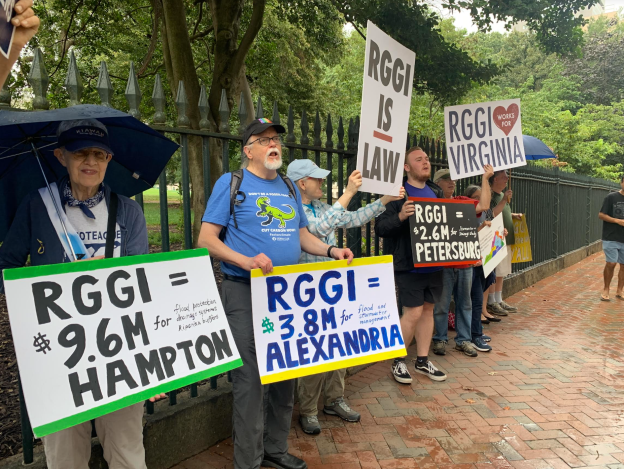
Norfolk City Councilwoman Andria McClellan stated: “RGGI is a drop in the bucket and if we can’t save this, how are we going to find funding for everything we need to do?”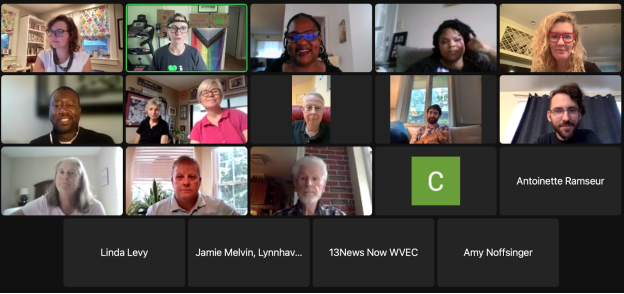
Mary-Carson Stiff, Director of Wetlands Watch, stated: “This is the only source of grant funding for flood preparedness and climate adaptation in Virginia. It’s it. The proceeds are consistent and reliable, which our communities need so they can plan to apply and then continue applying for years to come.”
BLACKSBURG
And in Blacksburg, 15 protesters gathered bearing colorful signs and t-shirts to make their voices loud and clear and spread the word about support for RGGI.
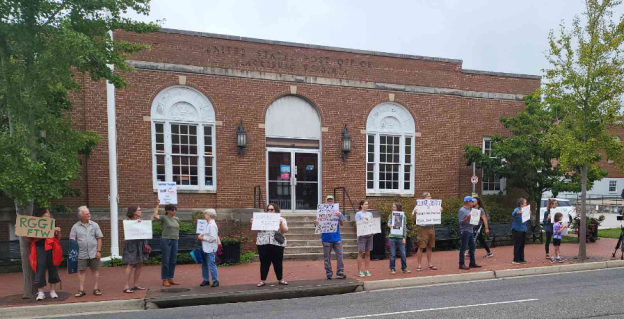 Photo from Chesapeake Climate Action Network
Photo from Chesapeake Climate Action Network
The New River Valley Chapter of the Democratic Socialists of America stated: “Governor Youngkin’s decision to remove Virginia from the RGGI will have lasting consequences for southwest Virginians and the mountains they love. We needed to organize this rally to make sure Virginia voters understand what we stand to lose without action on climate.”
The four rallies were organized by Chesapeake Climate Action Network, Appalachian Voices, Faith Alliance for Climate Solutions, Sierra Club Virginia Chapter, Sierra Club – Falls of the James Chapter, Third Act Virginia, and Virginia League of Conservation Voters.

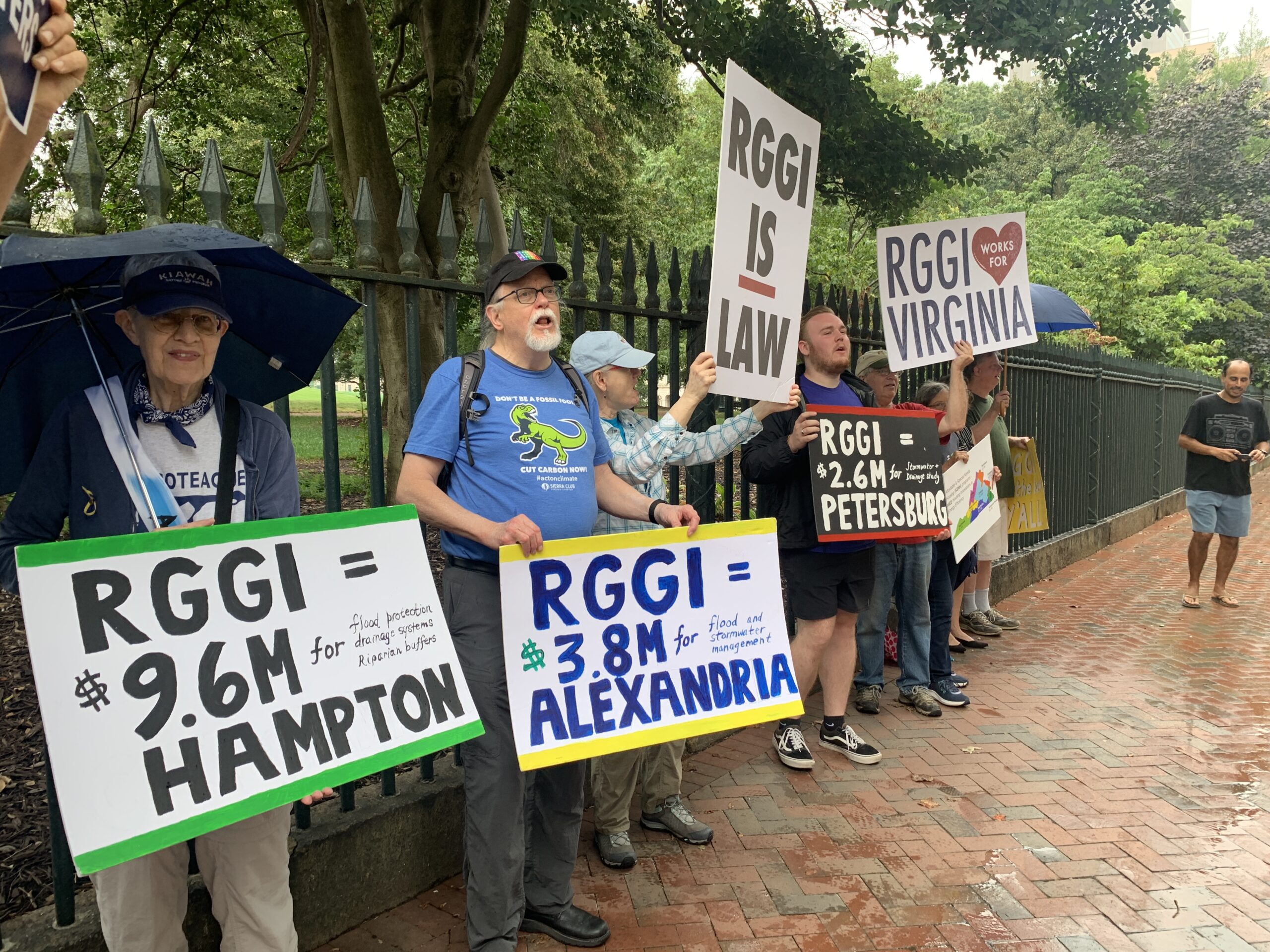

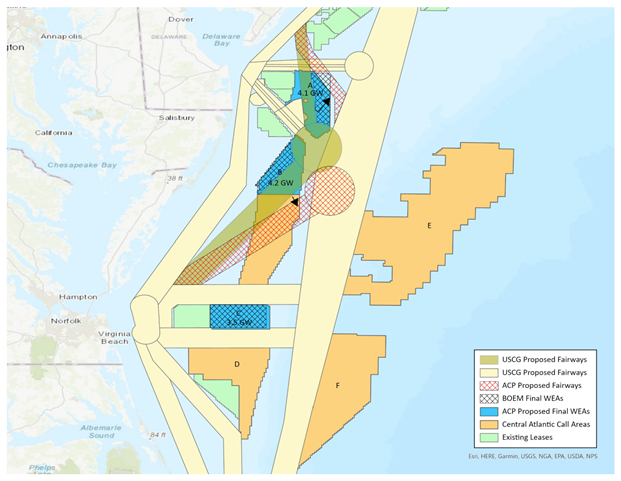




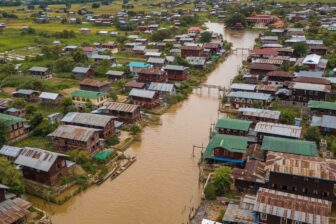

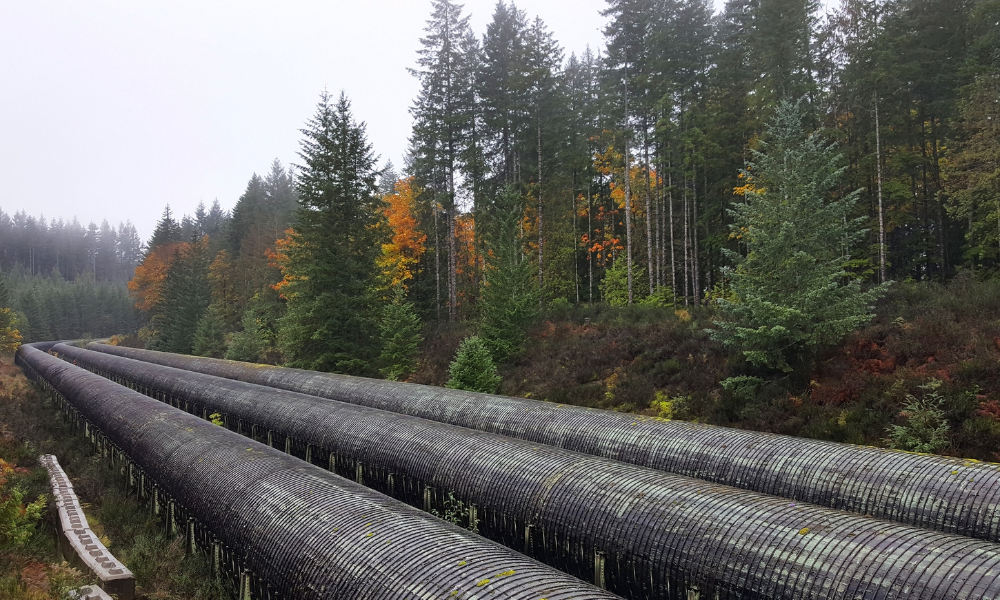
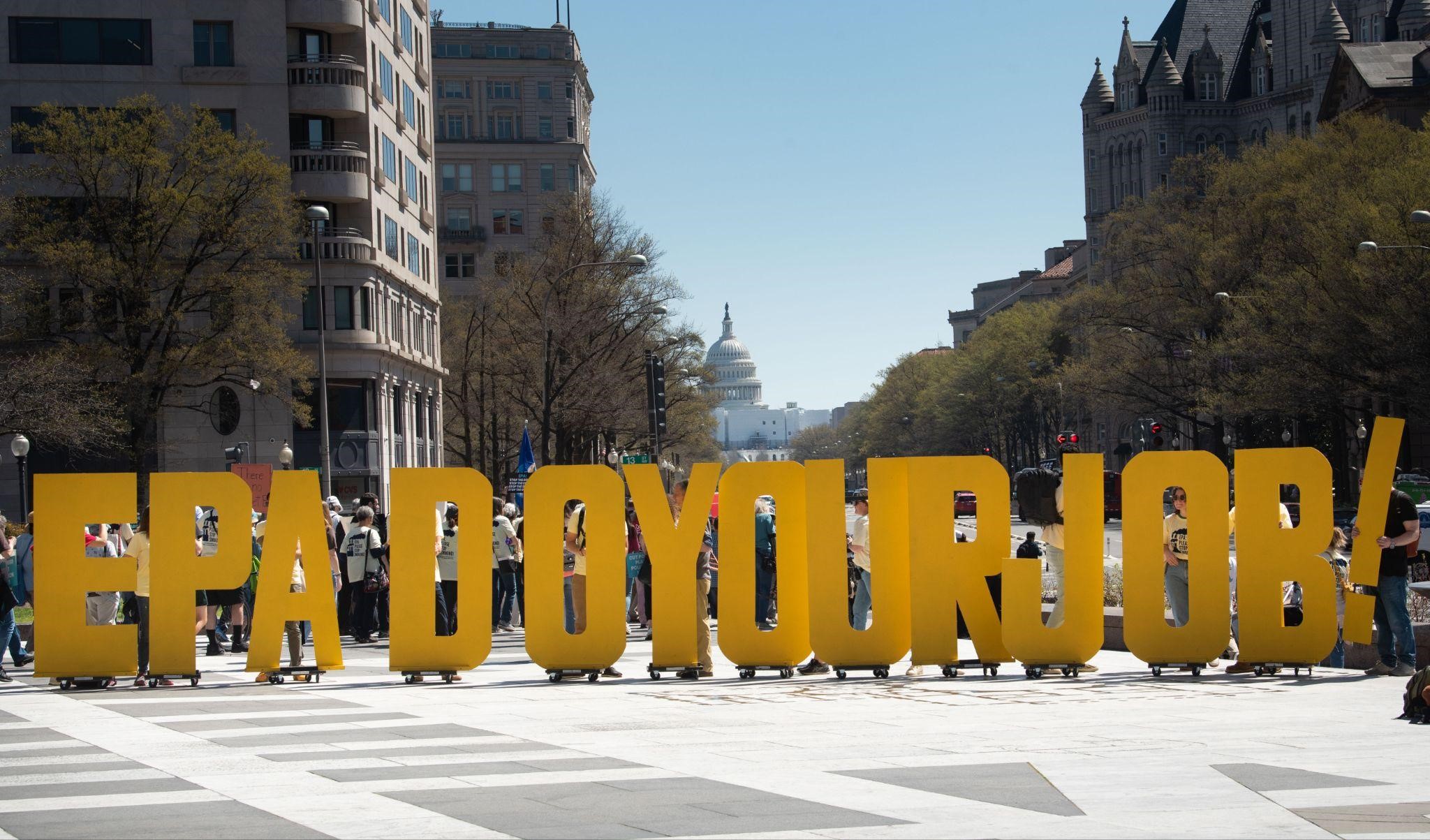

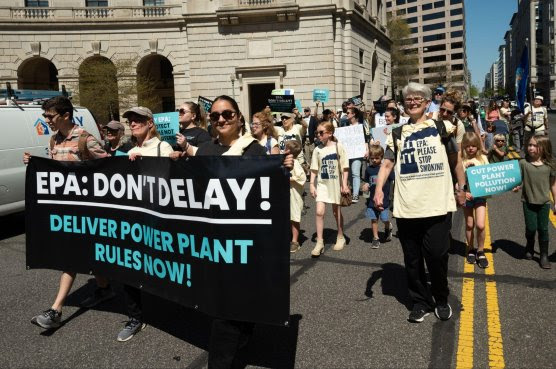
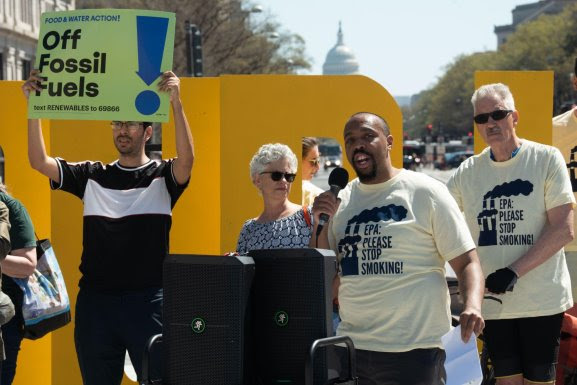
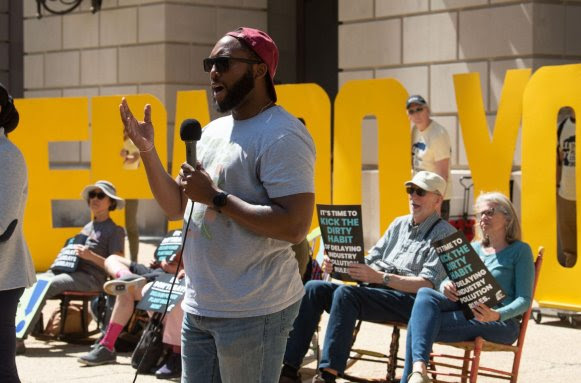
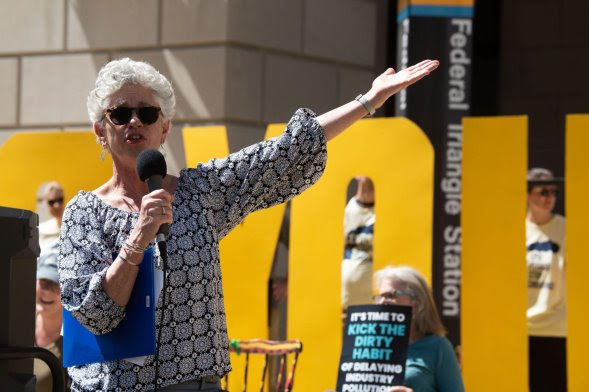
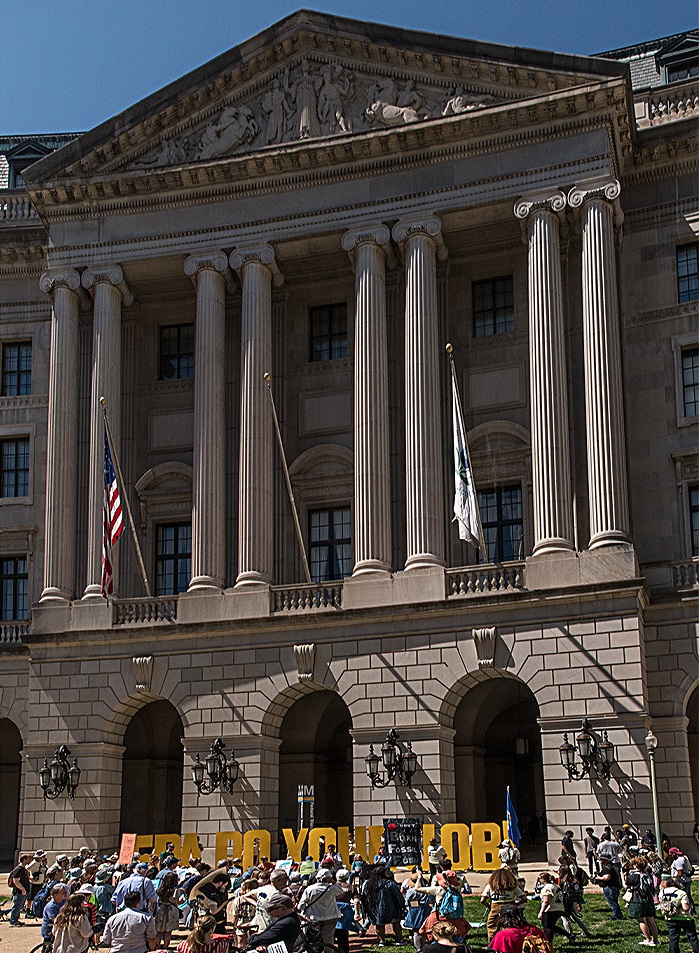
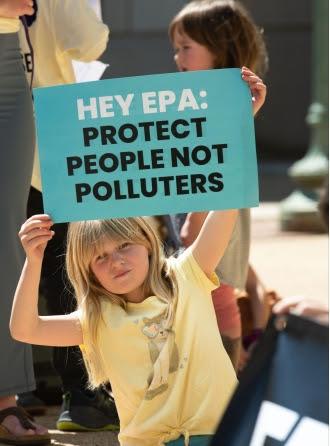
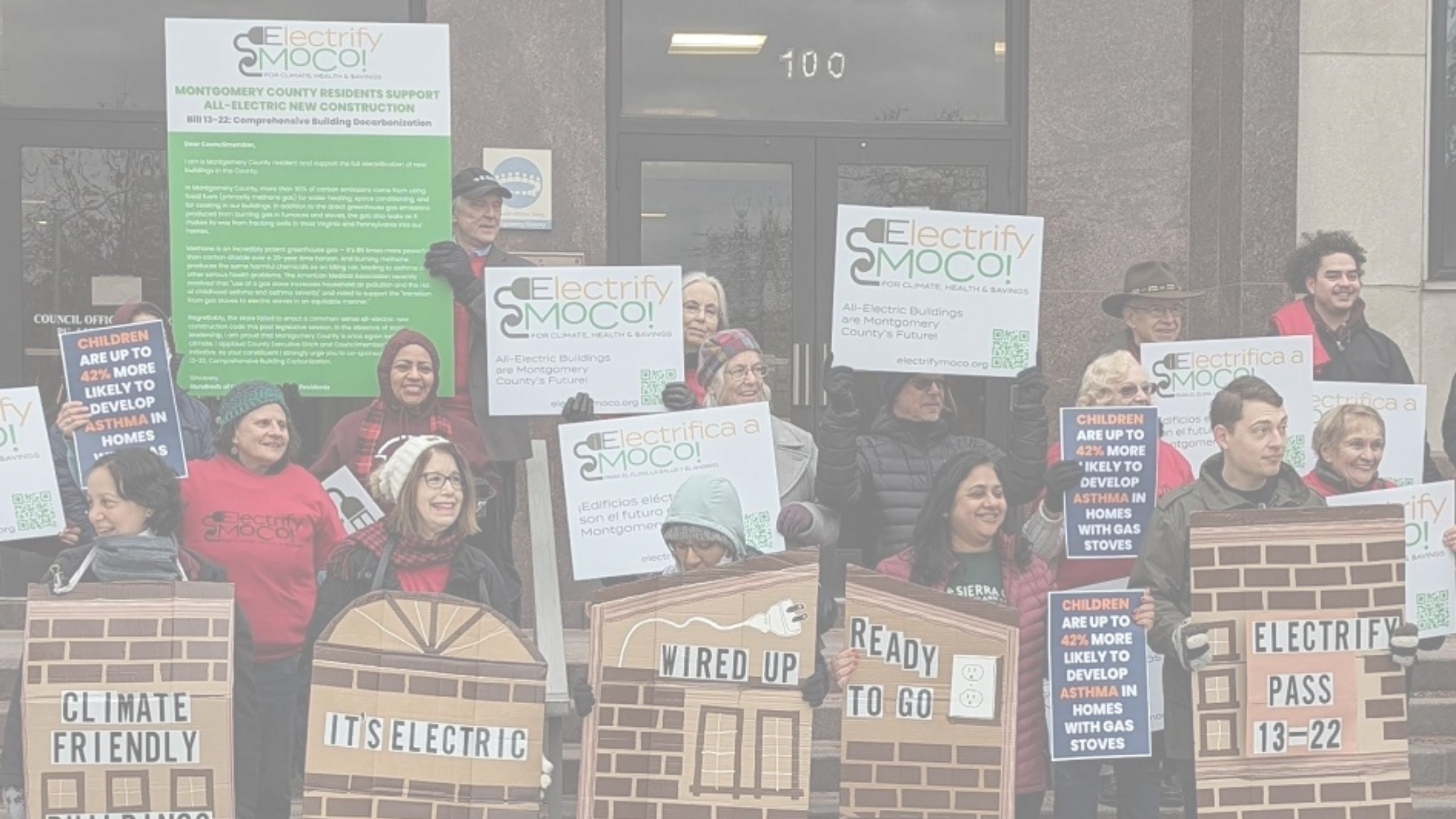
 “We’ve taken a giant step toward cleaner buildings and a better climate today,” said Councilmember and bill lead-sponsor Hans Riemer (D-At Large). “We are confident that other Maryland counties will now follow our lead – and the state General Assembly will follow with its own mandate for fossil-free new construction in just a couple of years.”
“We’ve taken a giant step toward cleaner buildings and a better climate today,” said Councilmember and bill lead-sponsor Hans Riemer (D-At Large). “We are confident that other Maryland counties will now follow our lead – and the state General Assembly will follow with its own mandate for fossil-free new construction in just a couple of years.”
